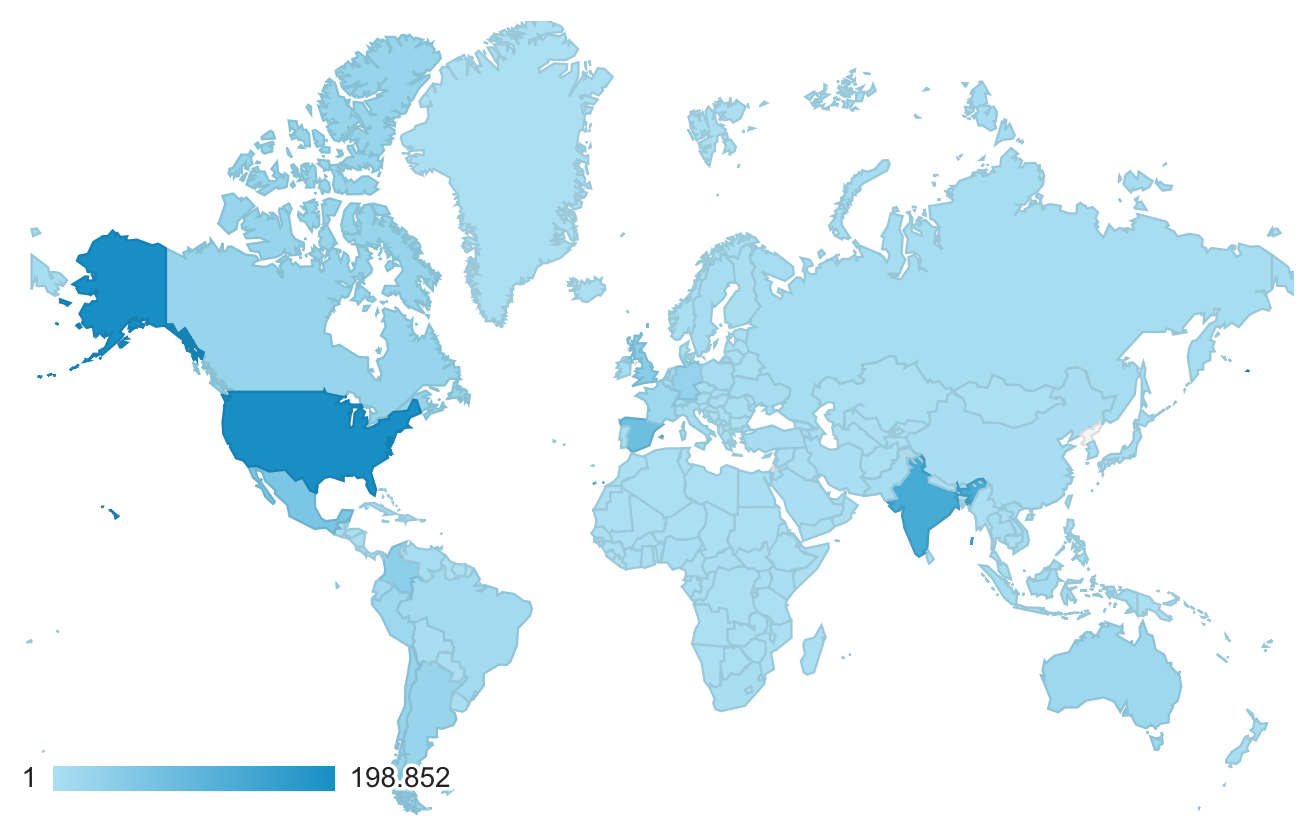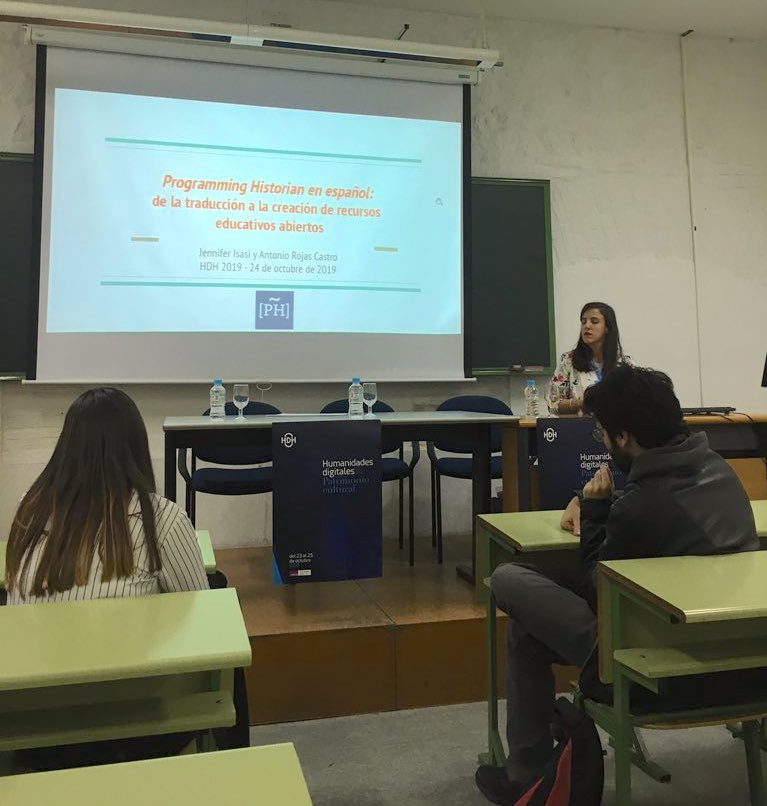
Programming Historian has been busy! And we have a lot to celebrate and be proud of this year. Overall, the project has expanded in all directions: our audience is up to almost 950,000 unique visitors for all year with 2,232,511 page visits, we had many new collaborators in the three languages, and four editorial members joined the team. Also, we created ProgHist Limited to be able to request funds to expand our project in new directions in the near future.
A Global Journal
With 80 lessons in English, 44 in Spanish and 5 in French and growing, Programming Historian receives visits from all over the world - and it is not an overstatement. Its unique lessons to learn digital methods from a humanistic perspective in open access license makes this posible.

Although the English version receives the most visits, from USA and India in particular, for the first time, there are five Spanish-speaking countries in our Top 10 countries that visit us: Spain, Mexico, Colombia, Chile and Argentina. This is indicative of the need of digital humanities materials in different languages and we couldn’t be more proud to be the leaders in the field.
The expansion and noteworthiness of the project is also being recognized by the international academic community. As a result, Programming Historian en español received the HDH 2018 award to the best pedagogical initiative developed during 2018.
This achievement would have not been possible this year without our many collaborators across languages and locations. Thank you!
Editorial Board Development
The project team of Programing Historian continues to grow and organize in order to sustain our multiple tasks. Sarah Melton, Martin Grandjean, Riva Quiroga and Joshua G. Ortiz Baco joined the team at different points during the year and have already contributed with lesson editing, translation and managerial roles. Sarah and Riva are, in fact, our English and Spanish teams managing editors. But not only have we welcomed new members. Anandi Silva Knuppel and Marie Puren stepped down of the project after many contributions. We wish them well.
In order to better organize our work, we have restructured the project and created different teams that are in charge of different, yet combined, parts of the journal. Each one of us are now part of the technical, editorial, project development, communication and/or global teams. It is our hope that by focusing on smaller tasks, we would be able to generate more and better outcomes for our user base.
Conference Presentations
Our French team member Sofia Papastamkou participated in the “Teaching Digital History Workshop” organized by the Center for Digital History Aarhus in Denmark in October 23. She presented “A Beating Heart of Digital History: The Programming Historian” and it was a total success.
Jennifer Isasi and Antonio Rojas Castro, of the team en español, shared our project experience with the Humanidades Digitales Hispánicas community in Toledo, Spain, also in October. They presented “Programming Historian en español: De la traducción a la creación de recursos educativos abiertos.” This started an important dialogue with this community on, first, the impossibility of only translating materials in English into other languages and, second, the need but also difficulty of generating original resources in Spanish.

New Lessons and Updates
Thanks to our network of authors, reviewers and editors, this year we have published several lessons in different languages, many translations, and we have updated the series on Python to its version 3. Our latest lessons are:
-
Introduction to Jupyter Notebooks by Quinn Dombrowski, Tassie Gniady, and David Kloster.
Jupyter notebooks provide an environment where you can freely combine human-readable narrative with computer-readable code. This lesson describes how to install the Jupyter Notebook software, how to run and create Jupyter notebook files, and contexts where Jupyter notebooks can be particularly helpful.
Stay tuned, because this lesson is already being translated!
-
Beginner’s Guide to Twitter Data by Brad Rittenhouse, Ximin Mi, and Courtney Allen.
Learn how to acquire Twitter data and process them to make them usable for further analysis.
-
Our very popular Python lessons have now been updated to Python 3!
Collaborate!
Do you use Programming Historian and want to collaborate? We are always looking for new lessons and you can contact us with your own idea for a lesson or a translation, or indicate your interest to peer-review lessons.
To help us make our work more sustainable and to continue being leaders in multilingual open access digital methods lessons, you can also join our Patreon subscriber list now!
The entire Programming Historian team wishes all of our readers a Happy New Year!

About the author
Jennifer Isasi is an Assistant Research Professor of Digital Scholarship and Director of the Digital Liberal Arts Research Initiative at Penn State, and a PhD on Hispanic Studies.
